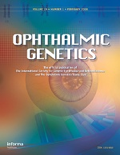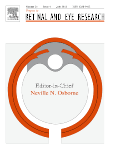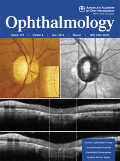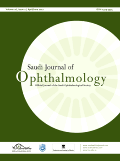
OPHTHALMIC GENETICS
Scope & Guideline
Exploring the Genetic Foundations of Ophthalmic Health
Introduction
Aims and Scopes
- Genetic Characterization of Eye Diseases:
The journal emphasizes the identification and characterization of genetic variants associated with inherited retinal diseases, syndromic conditions, and other ocular pathologies. This includes studies on the mutation spectrum, genotype-phenotype correlations, and novel gene discoveries. - Clinical Phenotyping and Management:
Papers often address clinical manifestations of genetic eye diseases, aiming to enhance understanding of disease progression, management strategies, and patient outcomes through detailed phenotypic descriptions and longitudinal studies. - Translational Research and Therapeutics:
The journal includes research on therapeutic interventions, including gene therapy approaches, pharmacogenomics, and innovative treatment modalities for inherited retinal diseases and other genetic ocular conditions. - Epidemiological Studies:
Research published also covers epidemiological aspects, exploring the prevalence, genetic predisposition, and environmental factors influencing various ocular conditions across different populations. - Ethical and Psychological Dimensions:
The journal occasionally addresses the ethical considerations and psychological impact of genetic testing and diagnosis on patients and families affected by hereditary eye diseases.
Trending and Emerging
- Expanded Genetic Testing and Screening:
There is an increasing focus on the use of next-generation sequencing and other advanced genetic testing methodologies to identify causative variants in inherited eye diseases, facilitating earlier diagnosis and personalized treatment strategies. - Longitudinal Studies and Natural History Research:
Emerging themes include comprehensive longitudinal studies that track disease progression and phenotypic variability over time, enhancing the understanding of genetic eye diseases and informing clinical management. - Psychosocial Impact of Genetic Diseases:
Research exploring the psychosocial aspects of living with genetic eye diseases, including anxiety, quality of life, and the emotional burden of genetic testing, is gaining prominence, reflecting a holistic approach to patient care. - Gene Therapy and Experimental Treatments:
There is a marked increase in studies related to gene therapy and experimental treatments for inherited retinal diseases, showcasing innovative approaches and clinical trial outcomes that could transform patient care. - Diverse Populations and Global Perspectives:
Research focusing on genetic eye diseases in diverse populations, particularly underrepresented groups, is trending, highlighting the need for inclusive research that considers population-specific genetic variants and disease phenotypes.
Declining or Waning
- Historical Case Reports:
There has been a noticeable decrease in the publication of historical case reports, possibly due to the shift towards more robust genetic analyses and clinical studies that provide broader insights into disease mechanisms. - Basic Science Research:
Research focused solely on basic science aspects of ocular genetics, such as cellular and molecular biology without direct clinical relevance, appears to be waning. The emphasis has shifted towards translational research that connects basic findings to clinical applications. - General Ophthalmology Topics:
Topics that do not directly relate to genetic factors, such as general ophthalmic conditions without a genetic component, are less frequently covered, indicating a narrowing of the journal's focus towards genetic and inherited conditions.
Similar Journals

PROGRESS IN RETINAL AND EYE RESEARCH
Driving Breakthroughs in Sensory SystemsPROGRESS IN RETINAL AND EYE RESEARCH, published by PERGAMON-ELSEVIER SCIENCE LTD, is a premier journal dedicated to the advancement of knowledge in the fields of ophthalmology and sensory systems. With an impressive impact factor and a Q1 category ranking in both Ophthalmology and Sensory Systems as of 2023, this journal exemplifies excellence in research dissemination. Given its stature, it ranks #1 out of 137 in Ophthalmology and #1 out of 42 in Neuroscience - Sensory Systems, placing it within the top percentile of scientific publications in these domains. The journal has been actively contributing to the field since its inception in 1994 and continues to be a vital resource for researchers, clinicians, and students seeking the latest insights and breakthroughs in the understanding of retinal diseases and eye health. While it maintains a traditional subscription model, the journal remains committed to publishing high-quality, peer-reviewed articles that drive forward the frontiers of eye research and therapeutic innovation. With its strong scientific rigor and a vast array of articles, PROGRESS IN RETINAL AND EYE RESEARCH is indispensable for anyone invested in the study of visual sciences.

OPHTHALMOLOGY
Leading the way in ophthalmic research and clinical excellence.OPHTHALMOLOGY is a leading journal in the field of ocular health, widely recognized for its contributions to advancing the understanding and treatment of ophthalmic conditions. Published by ELSEVIER SCIENCE INC in the United States, it has earned a prestigious place within the academic community, boasting a remarkable Q1 ranking in the ophthalmology category for 2023, along with an impressive Scopus rank of #2 out of 137, placing it in the 98th percentile. With a strong publication history dating back to 1958, OPHTHALMOLOGY encompasses high-quality research articles, reviews, and clinical studies that address critical issues in the field. Researchers, professionals, and students alike can access its comprehensive research through traditional subscription options, fostering an ongoing dialogue among experts. Whether you are seeking the latest treatments, understanding complex ocular diseases, or looking to advance your knowledge, OPHTHALMOLOGY remains an essential resource for cutting-edge research and insights.

EUROPEAN JOURNAL OF HUMAN GENETICS
Illuminating the Pathways of Human GeneticsThe EUROPEAN JOURNAL OF HUMAN GENETICS, published by SpringerNature, stands as a preeminent platform in the field of genetics and clinical genetics. Established in 1993, this prestigious journal, with an ISSN of 1018-4813 and an E-ISSN of 1476-5438, has consistently maintained its position in the Q1 quartile for both Genetics and Clinical Genetics categories as of 2023, reflecting its significant contributions to the field. Its impact is further underscored by its impressive Scopus rankings, placing it in the 92nd percentile among clinical genetics journals. The journal aims to disseminate cutting-edge research, case studies, and reviews that advance our understanding of human genetics, promoting collaboration and innovation among researchers, professionals, and students alike. While it does not currently offer open access, the journal provides substantial value through its rigorous peer review process and commitment to quality. As it continues to shape the future of genetic research through 2024 and beyond, the EUROPEAN JOURNAL OF HUMAN GENETICS remains an essential resource for those dedicated to exploring the complexities of human heredity.

Clinical Pediatric Endocrinology
Exploring the frontiers of endocrine disorders in children.Clinical Pediatric Endocrinology is a prestigious journal dedicated to advancing the field of pediatric endocrinology, published by the Japanese Society of Pediatric Endocrinology. With a respectable ISSN 0918-5739 and E-ISSN 1347-7358, this journal serves as a critical platform for innovative research spanning various aspects of endocrine disorders in children, including diabetes and metabolic conditions. Although it does not currently offer open access, it remains highly relevant in its category, being ranked in Q4 and Q3 tiers across multiple specialties as of 2023. With a publication history that spans from 1992 to 2024, this journal has contributed significantly to the literature, as evidenced by its inclusion in prominent databases. It invites submissions from researchers and practitioners worldwide, aiming to facilitate knowledge sharing and improve clinical practices in pediatric endocrinology. For those dedicated to enhancing care outcomes in children with endocrine disorders, Clinical Pediatric Endocrinology provides essential insights and fosters a community of engaged professionals.

Journal of the Korean Ophthalmological Society
Fostering Dialogue in the World of OphthalmologyThe Journal of the Korean Ophthalmological Society, with ISSN 0378-6471 and E-ISSN 2092-9374, is a pivotal resource in the field of ophthalmology, published by the esteemed Korean Ophthalmological Society. Based in South Korea, this journal is committed to advancing knowledge in ophthalmology through the dissemination of research that spans both clinical and experimental studies. Despite its current Q4 ranking in the 2023 Ophthalmology category, it serves as a crucial platform for emerging scholars, practitioners, and students seeking to contribute to and learn from the latest developments in eye care. While the journal does not currently offer open access, it is dedicated to fostering scientific dialogue and innovation within the community. With convergence years from 2018 to 2024, the journal's focus on contemporary issues in ophthalmology positions it as a relevant and timely source of information, critical for those engaged in this dynamic field. For further inquiries, the journal can be contacted at their address in Seoul, South Korea: SKY 1004 BLDG 701, 50-1 Jungnim-ro, Jung-gu, 04508.

Molecular Syndromology
Enhancing Knowledge in Genetic MedicineMolecular Syndromology is a premier journal focused on the intricate connections between molecular genetics and syndromology, fostering discussions that advance our understanding of genetic disorders and their clinical implications. Published by KARGER, a distinguished name in medical and scientific publishing, this journal serves as a valuable platform for researchers, clinicians, and students in the field of genetics. With its ISSN 1661-8769 and E-ISSN 1661-8777, the journal has gained recognition in its category, currently positioned in the Q4 quartile for both genetic and clinical genetics disciplines according to the latest metrics. Despite being indexed lower in Scopus rankings, it addresses crucial gaps in research and offers open access options that enhance visibility and dissemination of knowledge. As it continues to converge from 2010 to 2024, Molecular Syndromology aims to bridge the gap between molecular research and its clinical applications, making a significant impact in the evolving landscape of genetic medicine.

Saudi Journal of Ophthalmology
Enhancing Outcomes: Dedicated to the Science of Eye CareSaudi Journal of Ophthalmology, published by Wolters Kluwer Medknow Publications, stands as a crucial platform for the dissemination of innovative research and clinical practices in the field of ophthalmology. Since its inception in 2009, this journal has effectively contributed to the growing body of knowledge with a focus on addressing the diverse visual health challenges faced globally. With an ISSN of 1319-4534 and a E-ISSN of 2542-6680, the journal is indexed in Scopus, where it ranks in the Q3 category of ophthalmology, reflecting its commitment to quality research despite the competitive landscape. Situated in India, it provides a unique regional perspective while facilitating global discourse among researchers, practitioners, and students in ophthalmological sciences. Although it currently does not operate as an open-access journal, the Saudi Journal of Ophthalmology is essential for those aiming to expand their understanding of advancements in eye care, making it a valuable resource for professionals dedicated to enhancing patient outcomes through informed research and clinical practice.

Journal of Ophthalmology
Transforming Ophthalmology with Cutting-Edge InsightsThe Journal of Ophthalmology, published by HINDAWI LTD, is an esteemed open-access journal that has been disseminating significant research in the field of ophthalmology since 2009. With an ISSN of 2090-004X and an E-ISSN of 2090-0058, this journal facilitates global access to cutting-edge studies, making it an essential resource for researchers, clinicians, and students alike. Ranked in the Q2 category of ophthalmology for 2023, the journal holds a commendable position with a Scopus rank of #37 out of 137 in its field, placing it in the 73rd percentile. The journal encompasses a variety of topics such as clinical advancements, surgical techniques, and innovative technologies in eye care, aiming to advance scientific knowledge and clinical practice in ophthalmology. By providing a platform for both novel research and comprehensive reviews, the Journal of Ophthalmology is instrumental in fostering collaboration and scholarly communication within the global eye health community, and its commitment to open access ensures that impactful research reaches a wide audience without barriers.

GENETICS
Unlocking the Secrets of Heredity and EvolutionGENETICS, published by the Genetics Society of America, stands as a preeminent journal in the field of genetics, with a keen focus on advancing the understanding of genetic principles and their implications across various biological systems. Since its inception in 1945, the journal has played a pivotal role in disseminating groundbreaking research, maintaining a Q1 ranking in the genetics category as of 2023, positioning it among the top tier of academic publications. While access to the journal is not open, it continues to attract a global readership of researchers, professionals, and students eager to engage with high-quality, peer-reviewed articles that span both classical and contemporary genetics. With its publication history covering critical decades from 1945 to 2024, GENETICS is not just a repository of scientific knowledge but a vibrant forum for the exchange of ideas that drive the field forward. The journal’s commitment to excellence is demonstrated by its strategic coverage of pertinent topics, assuring its relevance for future generations of scholars.

Genetic Testing and Molecular Biomarkers
Advancing the Future of Genetic Research.Genetic Testing and Molecular Biomarkers, an esteemed journal published by MARY ANN LIEBERT, INC, serves as a pivotal platform for advancing the field of genetic research and its applications in medicine. Focused on the innovative intersections of genetics and biomarker discovery, this journal has consistently contributed meaningful insights since its inception in 2009, with its scope evolving through 2024. With an ISSN of 1945-0265 and an E-ISSN of 1945-0257, it offers both traditional and open access options to cater to a broad audience of researchers, professionals, and students. Despite its current classification in the Q4 and Q3 quartiles for Genetics (clinical) and Medicine (miscellaneous) respectively, the journal remains committed to publishing high-quality, peer-reviewed articles that push the boundaries of knowledge in the field. As the landscape of genomic medicine continues to expand, Genetic Testing and Molecular Biomarkers is positioned as a crucial resource for disseminating cutting-edge discoveries and fostering interdisciplinary collaboration.